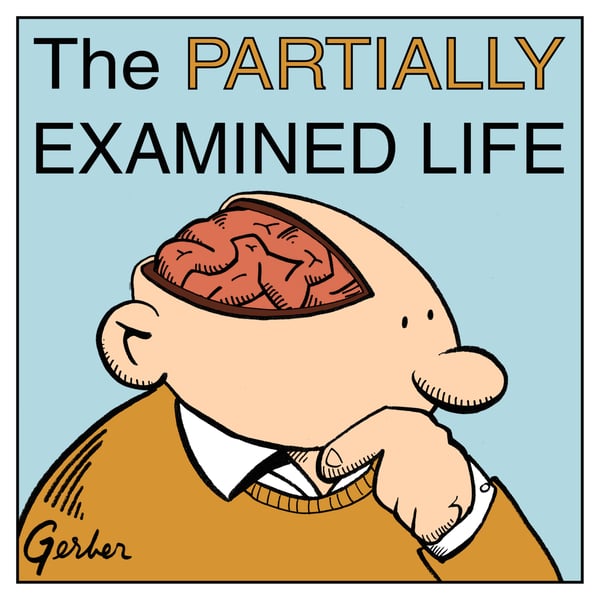Ep. 348: Tim Williamson's Knowledge-First Epistemology (Part One)
The Partially Examined Life Philosophy Podcast
Mark Linsenmayer
4.6 • 2.3K Ratings
🗓️ 19 August 2024
⏱️ 48 minutes
🧾️ Download transcript
Summary
On "Knowledge First Epistemology" (2011), "Justifications, Excuses, and Sceptical Scenarios" (2015), and "Morally Loaded Cases in Philosophy" (2019).
Is knowledge basic, or is it dissolvable into more basic ingredients such as justification, truth, and belief? Williamson argues that these latter things should instead be defined in terms of knowledge.
Get more at partiallyexaminedlife.com. Visit partiallyexaminedlife.com/support to get ad-free episodes and tons of bonus discussion.
Sponsor: Apply for convenient term life insurance from Fabric by Gerber Life at meetfabric.com/PEL.
Transcript
Click on a timestamp to play from that location
| 0:00.0 | You're listening to the partially examined life a podcast by some guys who at one point |
| 0:10.9 | said on doing philosophy for a living but then thought better of it. |
| 0:13.8 | Our question for episode 348 is something like, what is philosophy's task in analyzing |
| 0:19.5 | knowledge? |
| 0:20.8 | We read some articles by Timothy Williamson. Knowledge First Epitomology, which was published as a chapter in the Rutledge Companion to Epistemology in 2010, |
| 0:30.0 | Justifications, excuses, and skeptical scenarios from 2015 and morally loaded cases in philosophy in 2019. |
| 0:38.0 | For more information about these articles and the podcast, please see Partially Examine Life.com. |
| 0:42.0 | This is Mark Linton Meyer with crystal clear compliance conditions in Madison, |
| 0:46.3 | Wisconsin. |
| 0:47.3 | This is Wesall I justified in believing I ought to do something without being justified in actually doing it in Cambridge, Massachusetts. |
| 0:56.4 | This is Christopher Heath. |
| 0:58.0 | I am unjustified but also blameless in Hollywood, California. And this is Russell Ming, intellectually isolated in Bakersfield, California. |
| 1:10.0 | All right, so we recently had an episode on the justified true belief, the Gettyer cases, |
| 1:16.4 | and one of the things that came out of that was, well, explicitly in this Zebzebsky article, |
| 1:22.1 | the idea that actually you can't improve the |
| 1:25.7 | definition of knowledge as justified true belief by beefing up justification or |
| 1:30.0 | adding in an extra thing that it's actually a hopeless task. |
| 1:33.4 | And so the natural response to that, which I think some of us voiced |
| 1:38.1 | even during the discussion was maybe this was a fruitless project in the first place |
| 1:42.4 | and we shouldn't expect to be able to analyze knowledge in this way. |
| 1:45.0 | And then we just covered the Indian Nia School, |
| 1:48.0 | which actually has this knowledge first approach, |
... |
Please login to see the full transcript.
Disclaimer: The podcast and artwork embedded on this page are from Mark Linsenmayer, and are the property of its owner and not affiliated with or endorsed by Tapesearch.
Generated transcripts are the property of Mark Linsenmayer and are distributed freely under the Fair Use doctrine. Transcripts generated by Tapesearch are not guaranteed to be accurate.
Copyright © Tapesearch 2025.

